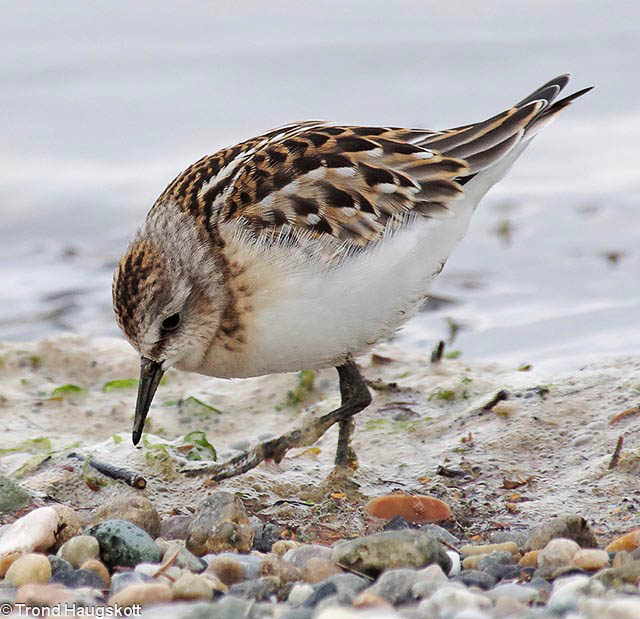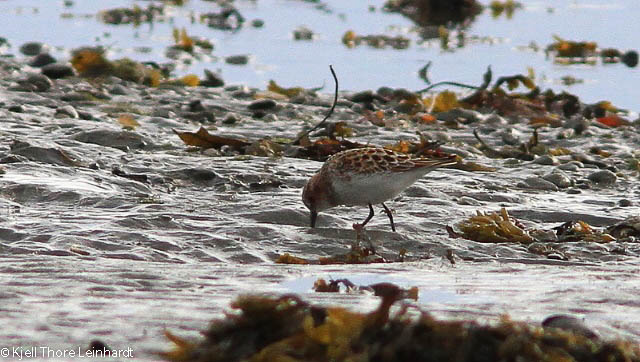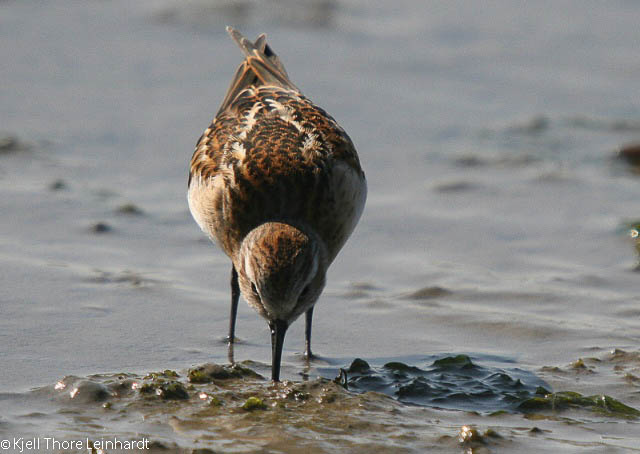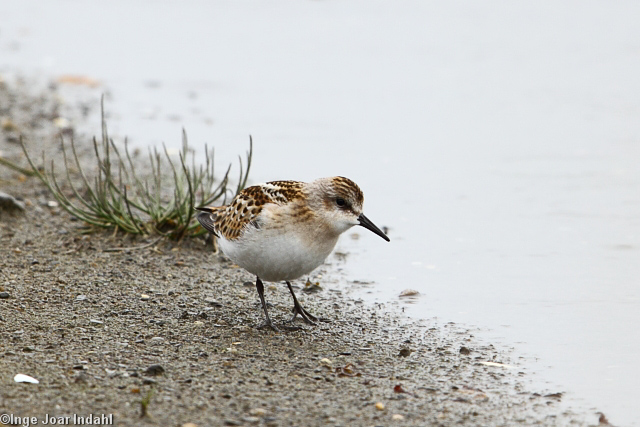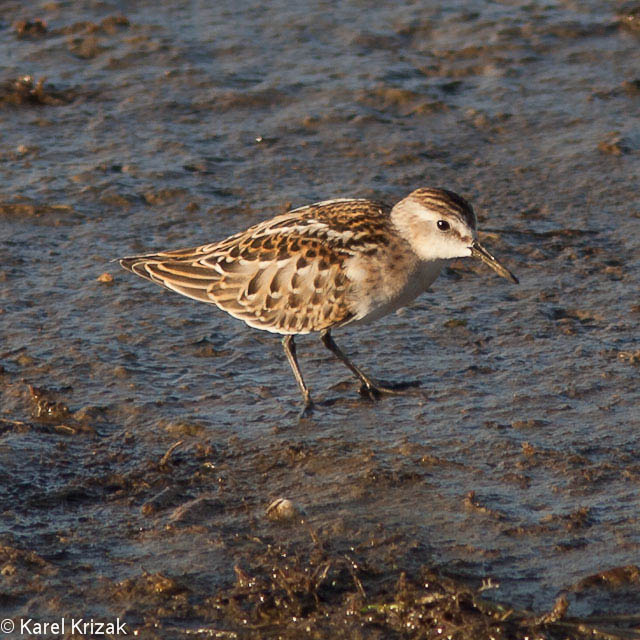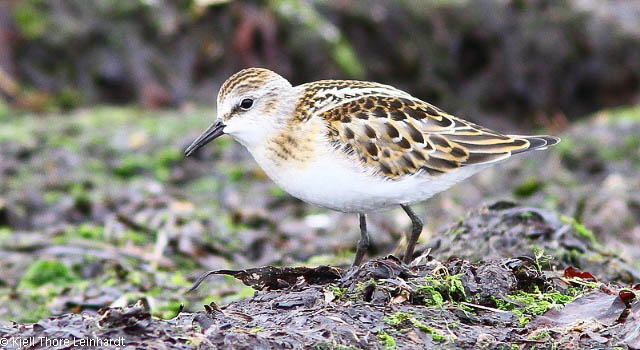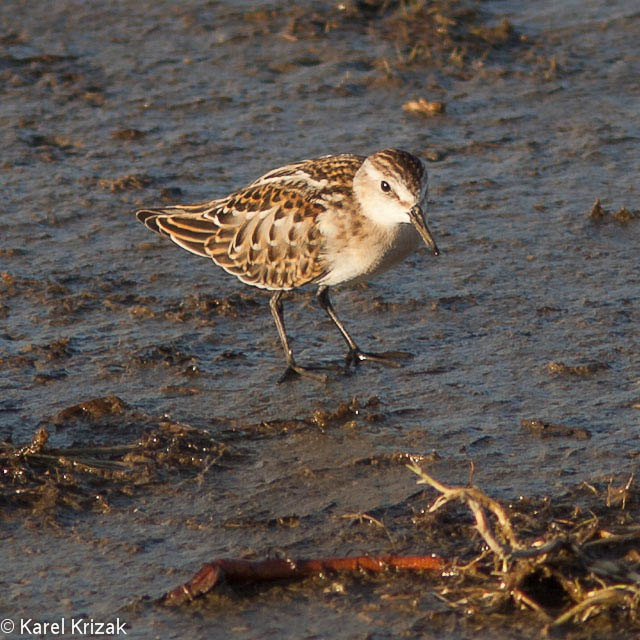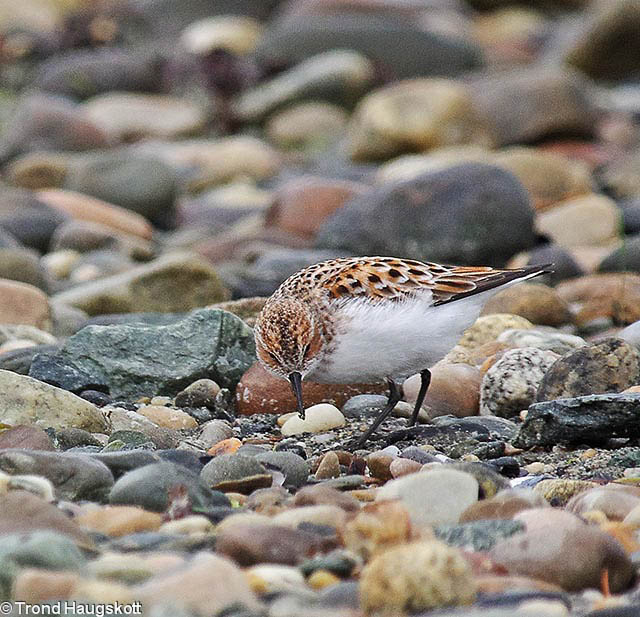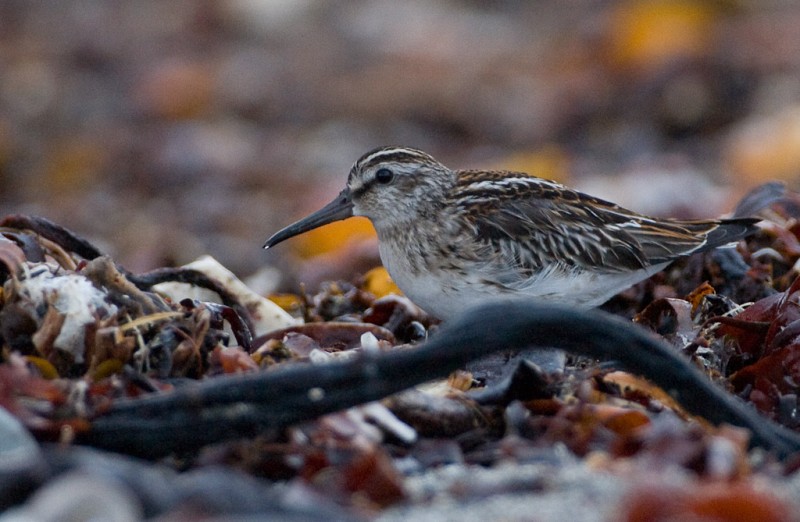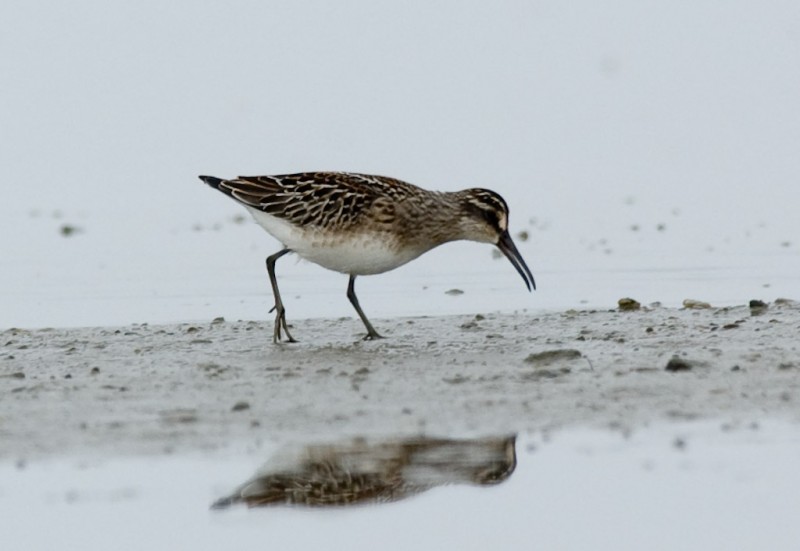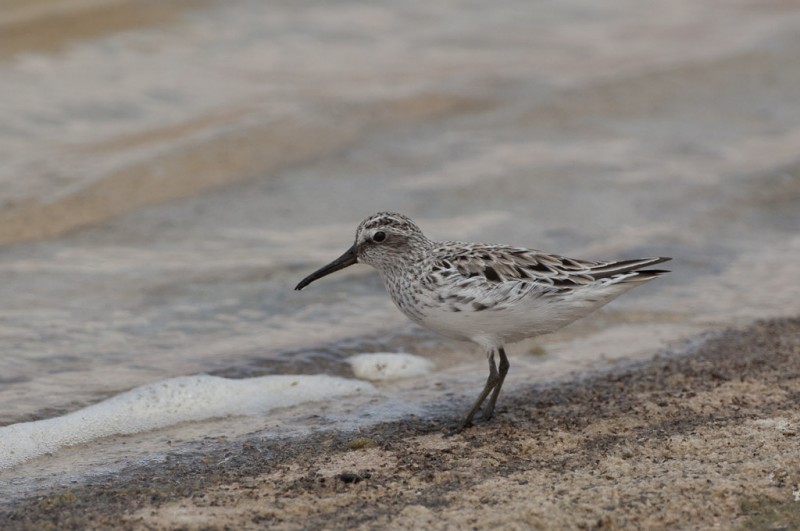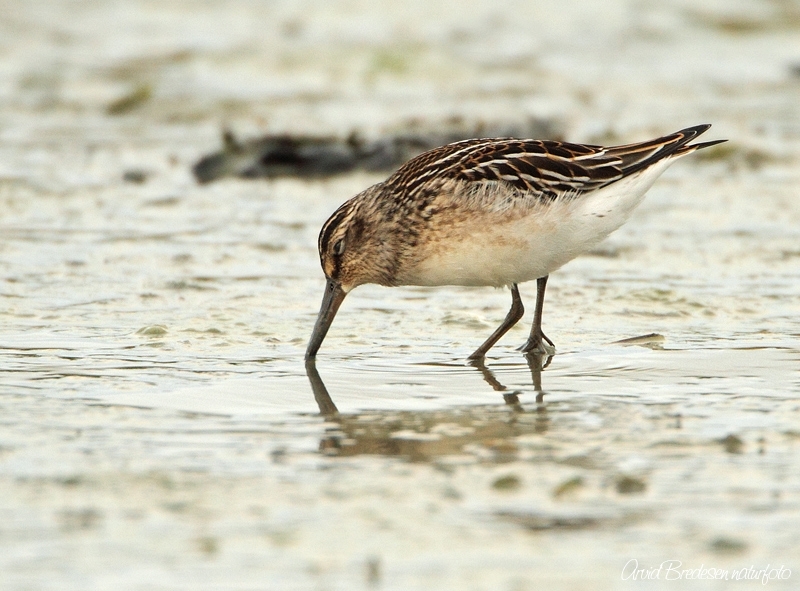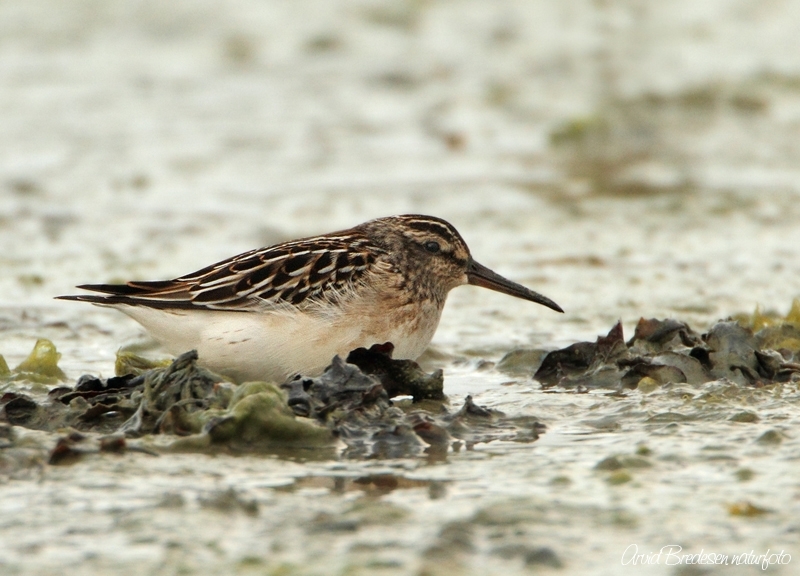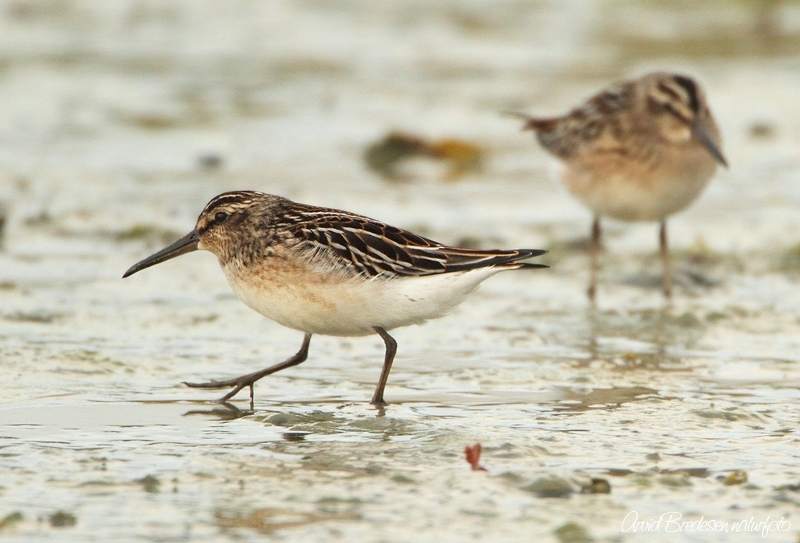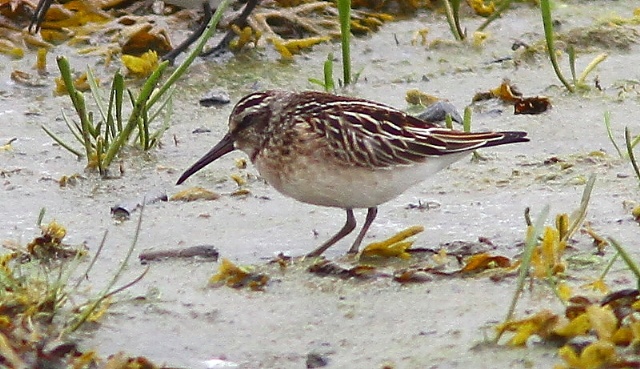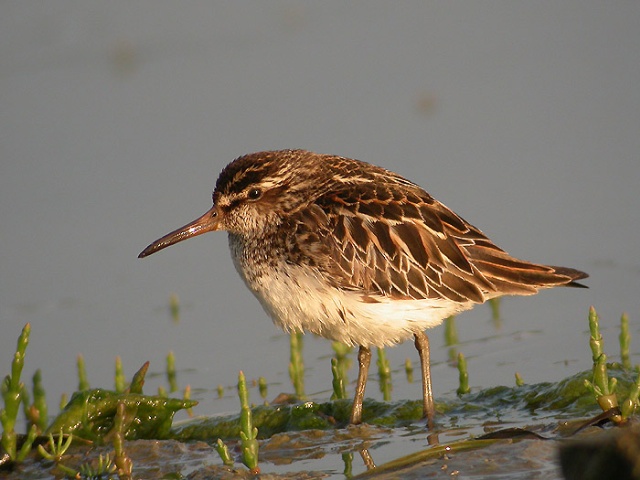Little Stint (Calidris minuta)
Broad-billed Sandpiper (Calidris falcinellus)
A small compact wader with dark legs and short, almost straight dark bill. Noticeably smaller than Dunlin, and with shorter, and straighter bill. Similar in size to Temminck's Stint, but legs dark, tail shorter (and grey) and markings on back less plain. Juveniles with prominent white V on back, and split white supercilium. Upperparts of adults rufous brown in summer, and light grey in winter.
Sound:Contact call a quite soft, short, high pitched "pit". Sometimes uttered in series, or as soft chattering. Song a cyclic series of thin "peee-peee-peee" rising and falling in pitch.
Contact call:
Distribution:
Wikipedia: map (se also Xeno-canto below)
Ecology:Birdlife ecology
Links:
Observation.org Latest observations
Image search Flickr NB! May give other species
CCSounds:Recorded by Andrew Spencer,http://www.xeno-canto.org ,CC license
Can be mistaken for a Dunlin but differs in characteristic double supercilium, unmarked belly and shorter legs. Bill is thicker, almost swollen at base, and more distinctly bent at tip. Overall impression much more contrasty than Dunlin. Winter plumage with dark centres of tertials, and finely striped crown. Juveniles with white V-shaped markings on back, similar to Little Stint. Wing bars and tail markings resembles Dunlin in flight. Moves relatively slow when feeding.
Sound:Distinct contact call. A trilling "drrroiiit" with a peculiar timbre, ending with a rapid rise of pitch. Song often preceded by the contact call, which then fuses into a continuous vibrating trill.
Song:
Distribution:
Xeno-canto: map
Ecology:Birdlife ecology
Links:
Observation.org Latest observations
Image search Flickr NB! May give other species
CC
 English
English Albanian
Albanian
 Armenian
Armenian
 Bulgarian
Bulgarian
 Catalan
Catalan
 Croatian
Croatian
 Czech
Czech
 Danish
Danish
 Dutch
Dutch
 Finnish
Finnish
 French
French
 Georgian
Georgian
 German
German
 Greek
Greek
 Hungarian
Hungarian
 Italian
Italian
 Latvian
Latvian
 Lithuanian
Lithuanian
 Macedonian
Macedonian
 Norwegian
Norwegian
 Polish
Polish
 Portuguese
Portuguese
 Romanian
Romanian
 Russian
Russian
 Sami : Lule sami
Sami : Lule sami
 Sami : North sami
Sami : North sami
 Sami : South sami
Sami : South sami
 Scientific names
Scientific names
 Serbian
Serbian
 Spanish
Spanish
 Swedish
Swedish
 Ukrainian
Ukrainian

